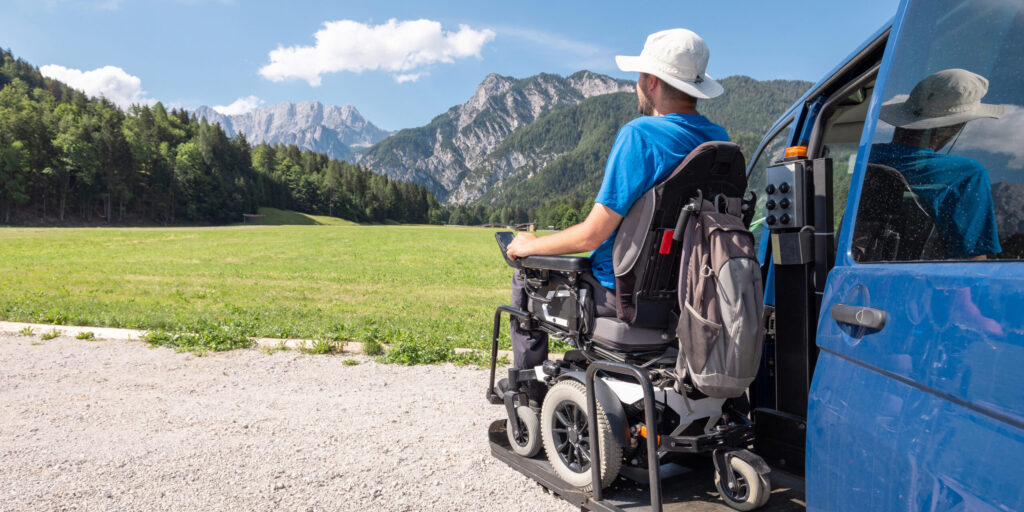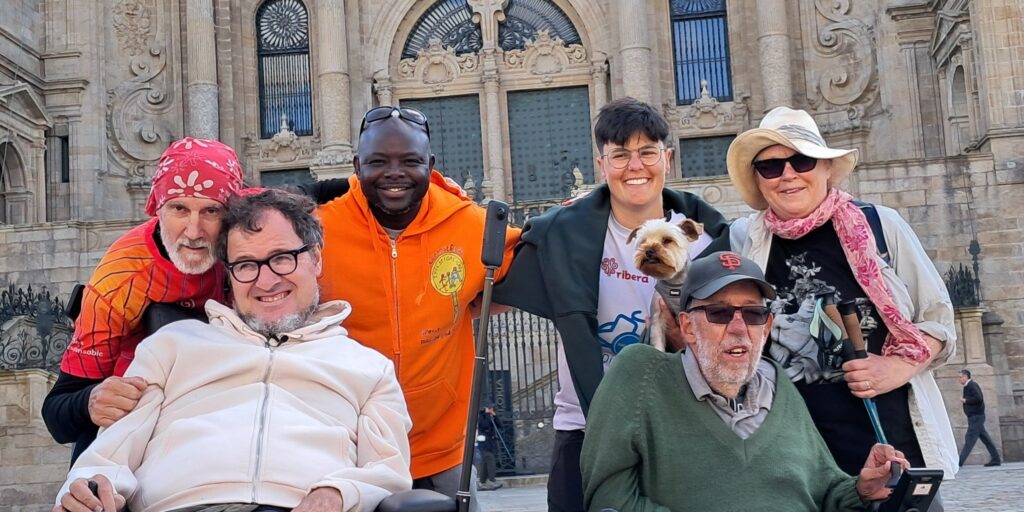
Living Independently with a Disability
By Amy Bernstein | Monday, July 1, 2024
Adaptability and problem-solving are essential skills for living independently with a disability. Quest Media has had many conversations with experts, thought leaders, and members of the neuromuscular disease community about independent living. They have shared everything from life hacks to their own life experiences. Read on for a selection of some of our favorite Quest Media content on living independently with a disability.
Living on your own
Moving into your own home is an exciting adventure, but the responsibilities can be overwhelming for anyone. Adding the unique challenges of living with a neuromuscular disease requires careful planning. Get tips to ensure a smooth transition and read how some individuals in the neuromuscular community got their own place in Tips for Adults With Disabilities Who Want to Live on Their Own.
It’s important to be safe in your own home. In How to Feel Safe in Your Home, an assistive technology specialist details how to set up an affordable and robust home security system. In addition to reducing the risk of theft and injuries, some home security features can make your house more accessible. “The automated systems make it easier to do things, not having to always move from room to room,” says Paul Robertson, who lives with limb-girdle muscular dystrophy (LGMD).
Once your basic safety is taken care of, you’ll look for ways to function independently in your home. MDA National Ambassador Ira Walker, who lives with spinal muscular atrophy (SMA), documents his journey to becoming a proficient home cook — and his favorite kitchen appliances — in An Appetite for Independence. “I discovered not only how to cook my own meals, but I also discovered the enjoyment and satisfaction of cooking,” Ira says. He and others in the MDA community demonstrate the importance of having an independent mindset.
Decorating your living space isn’t just fun — the right décor also promotes independence. Find tips and products that make your space more accessible in How to Deck Out Your Dorm Room for Accessibility. Hint: It’s not just for dorms.
Tips for everyday living
You don’t have to figure out everything on your own. Knowing when and how to ask for help is an essential skill for independent living. Far from undermining your independence, being appropriately assertive while instructing others on how to assist you is key for navigating daily life. In Overcome Embarrassment of Asking for Help in Daily Life, writer Andrew Zaleski, who lives with myotonic dystrophy (DM), talks with other community members about how they became more comfortable expressing their needs and receiving help.
Occupational Therapists (OTs) are a great resource for tips and tricks because they are trained to assess challenges and limitations in areas of daily living and propose solutions and modifications. In Easy, Expert-Level Life Hacks from an Occupational Therapist, OT Brooke Aarvig provides recommendations that are inexpensive and easy to manage at home.
When you know where to look — and how to ask — there are many resources that can help you find solutions to your challenges. Learn how other community members find the support and tools they need in Find the Right Resources.
Products and tools
We’re always looking for products that can make life easier, more stylish, and fun. We created the Quest Media Product Guide to showcase products that MDA Ambassadors use and recommend. This curated selection changes seasonally and always includes a variety of items that enhance independence, with descriptions from the individuals with disabilities who use the products.
Living with a disability makes household chores and housecleaning more difficult. In Accessible Spring-Cleaning Tools and Tips, we share cleaning methods and products that can make cleaning your home a more accessible, efficient experience all year long. In addition, using accessible cleaning tools can increase independence and lighten the load.
You can maintain your independence on the go with the right tools. Read Summertime Travel Go-Anywhere Products and Tips to learn how to pack smart and stay comfortable wherever you go.
How to build independence
Building independence starts early, and parents play a key role in laying a foundation to encourage their children to dream big. “My parents wanted me to be able to do everything I wanted to do, even if a little alteration was necessary,” recalls Sydney Horak, a college student who lives with SMA. In Raising Resilient Kids with Neuromuscular Diseases, adults living with neuromuscular diseases share how their upbringings helped them build confidence and thrive.
Maintaining an independent mindset is a lesson that can be practiced throughout life. People with neuromuscular diseases must adjust and adapt as their abilities change. MDA Ambassador Travis Rasmussen, who lives with SMA, shares how he continues to enjoy music and outdoor adventures as his disease progresses in Embracing Adventure (with a Little Help from My Friends). “Finding ways to do the things I love fundamentally changed my perspective on the world. It made me realize that there is so much to experience, explore, and learn,” Travis says.
Self-advocacy is an essential skill for living independently, and it is embodied by Beckley Lorenz, who didn’t take “no” for an answer when a local government agency denied his request to live independently in a community living setting. Read about his successful case in How a Man With DMD Won His Right to Live Independently.
At Quest Media, our mission is to empower the neuromuscular community and reflect its vibrancy and resilience. There’s always a new story to tell or resource to share. Check Quest Media often for more great content to help you live independently with a disability.
Next Steps and Useful Resources
- MDA Community Education empowers the neuromuscular disease (NMD) community through high-quality educational programs and materials. Learn valuable skills for overcoming common barriers in Access Workshops, get up-to-date information from experts in the field and connect with other families at Engage Symposiums, print out educational materials, and more.
- Stay up-to-date on Quest content! Subscribe to Quest Magazine and Newsletter.
Disclaimer: No content on this site should ever be used as a substitute for direct medical advice from your doctor or other qualified clinician.




